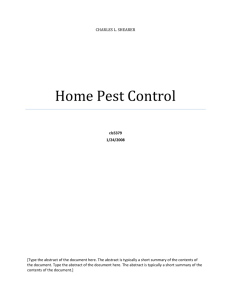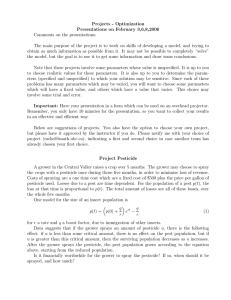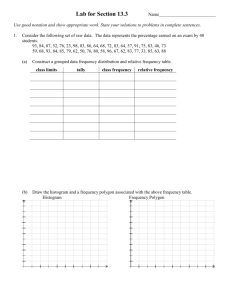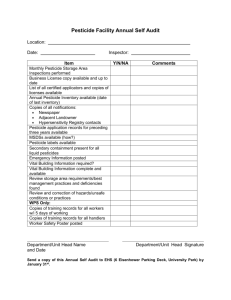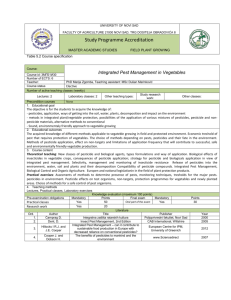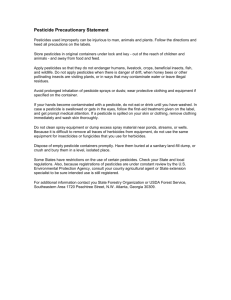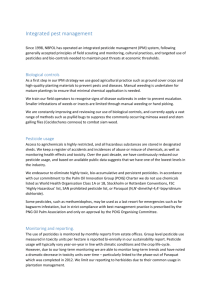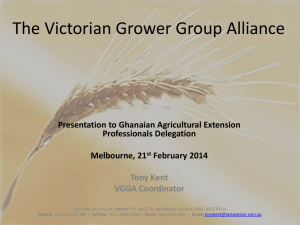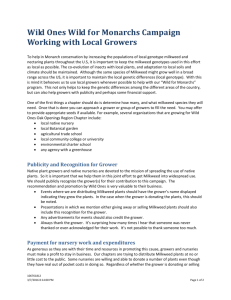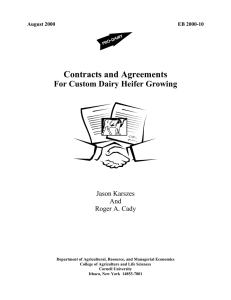National Potato Council
advertisement
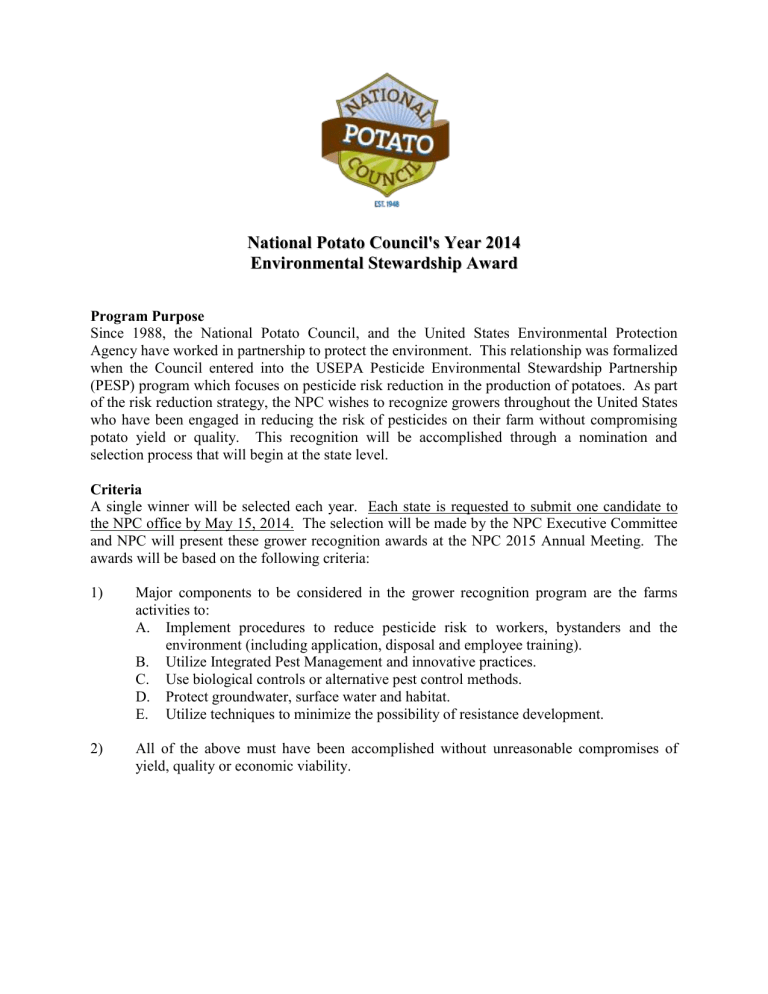
National Potato Council's Year 2014 Environmental Stewardship Award Program Purpose Since 1988, the National Potato Council, and the United States Environmental Protection Agency have worked in partnership to protect the environment. This relationship was formalized when the Council entered into the USEPA Pesticide Environmental Stewardship Partnership (PESP) program which focuses on pesticide risk reduction in the production of potatoes. As part of the risk reduction strategy, the NPC wishes to recognize growers throughout the United States who have been engaged in reducing the risk of pesticides on their farm without compromising potato yield or quality. This recognition will be accomplished through a nomination and selection process that will begin at the state level. Criteria A single winner will be selected each year. Each state is requested to submit one candidate to the NPC office by May 15, 2014. The selection will be made by the NPC Executive Committee and NPC will present these grower recognition awards at the NPC 2015 Annual Meeting. The awards will be based on the following criteria: 1) Major components to be considered in the grower recognition program are the farms activities to: A. Implement procedures to reduce pesticide risk to workers, bystanders and the environment (including application, disposal and employee training). B. Utilize Integrated Pest Management and innovative practices. C. Use biological controls or alternative pest control methods. D. Protect groundwater, surface water and habitat. E. Utilize techniques to minimize the possibility of resistance development. 2) All of the above must have been accomplished without unreasonable compromises of yield, quality or economic viability. National Potato Council's Year 2014 Environmental Stewardship Award Grower Nomination Grower Name: Farm Name: Address: City: State: Zip: Phone: ________________________________ Email: _________________________________ Number of potato acres: Pesticide Risk Reduction Strategy Applicant must have outstanding achievement in the area of pesticide risk reduction. This includes the adoption of new spray techniques, the use of new chemistry, the proper handling and disposal of chemicals, the management of resistance and the proper training of employees. This category includes, but is not limited to, the reduction of amount of pesticides used. Pesticide Risk Reduction Strategy Rotational Strategy Disposal/Handling Techniques Resistance Management Integrated Pest Management Practices This category deals specifically with the issues of scouting, pest forecasting, threshold management, prescriptive spraying, and other methods that are used in a predictive fashion to manage pests. Does the grower employ the following IPM techniques? Scouting __________ Irrigation Scheduling __________ Threshold Management __________ Resistant Variety Selection __________ List the other IPM strategies that this grower employs Biological Control/Transgenic Methods This category deals with the use of other than petroleum-based pesticides such as BT, pheromones, use of predatory insects or transgenic varieties in the farm operation. Biological Control Strategy Water, Soil, and Habitat Conservation Methods This category deals with the preservation of water quantity and quality, soil conservation, and the protection of wildlife habitat (including beneficial insects). Water Quality Practices Water Quantity Practices Soil Conservation Practices Habitat Preservation Other Pesticide Risk Reduction Strategies State Submitting Date
